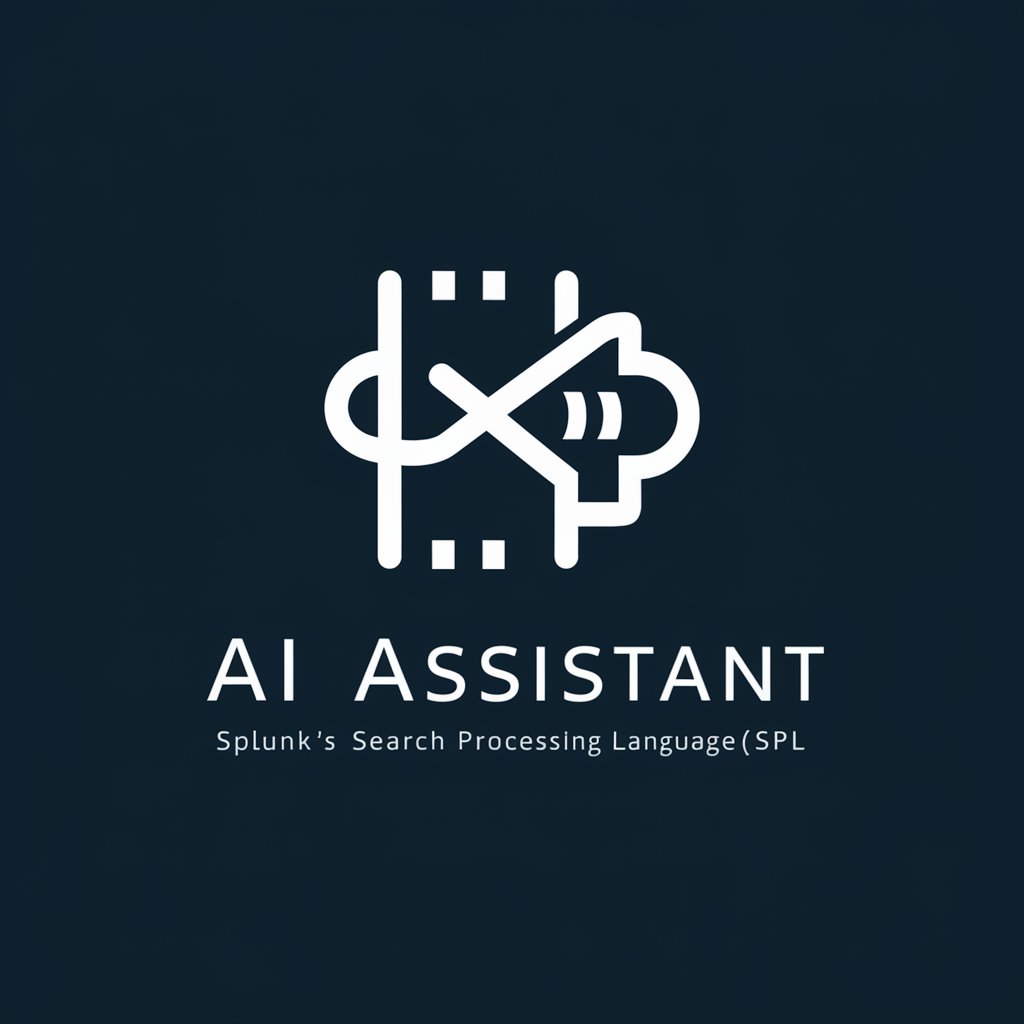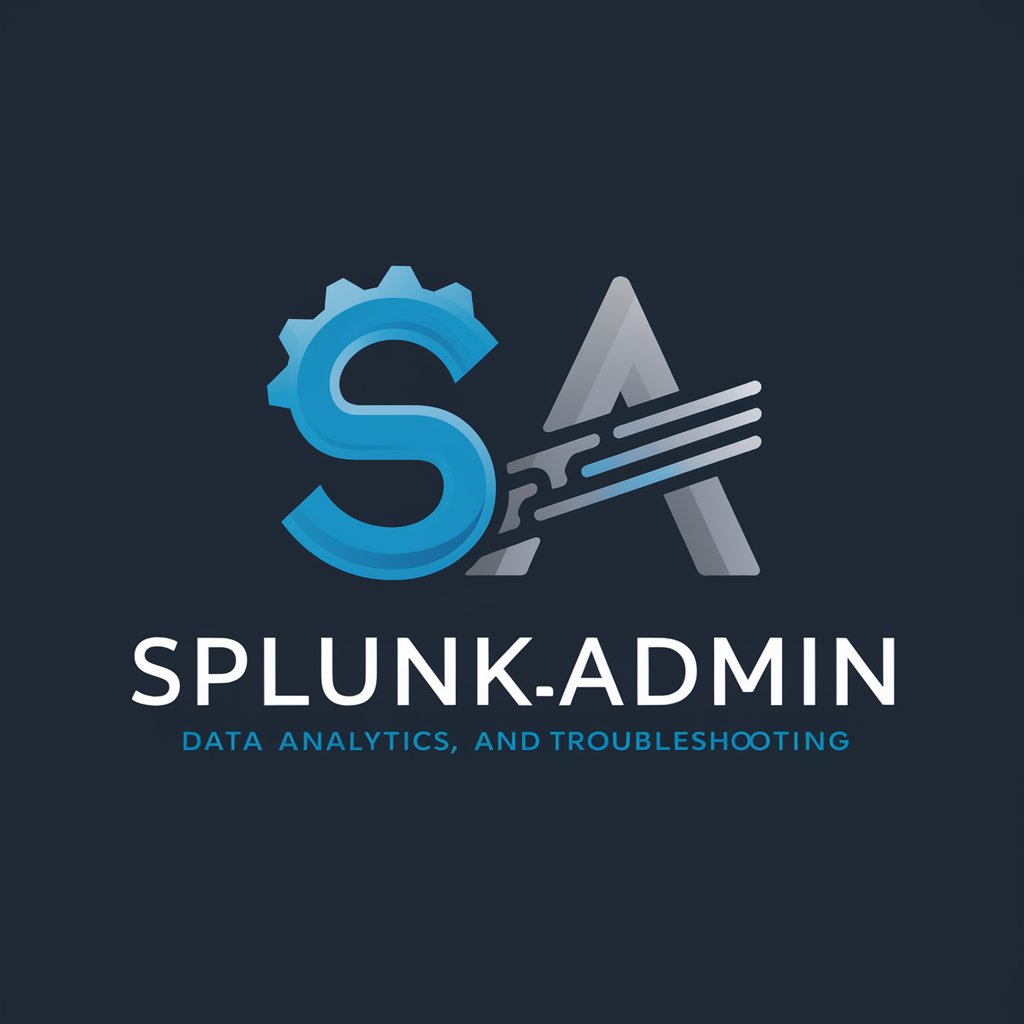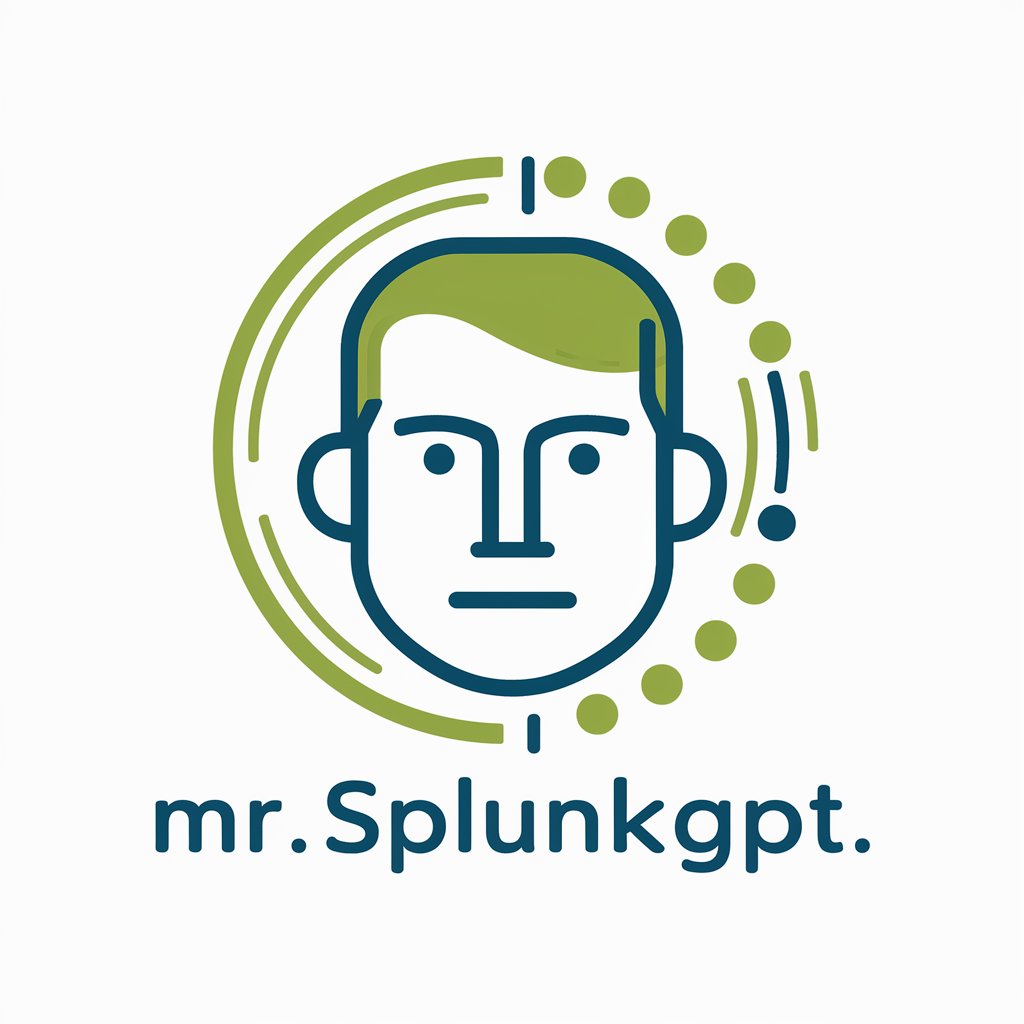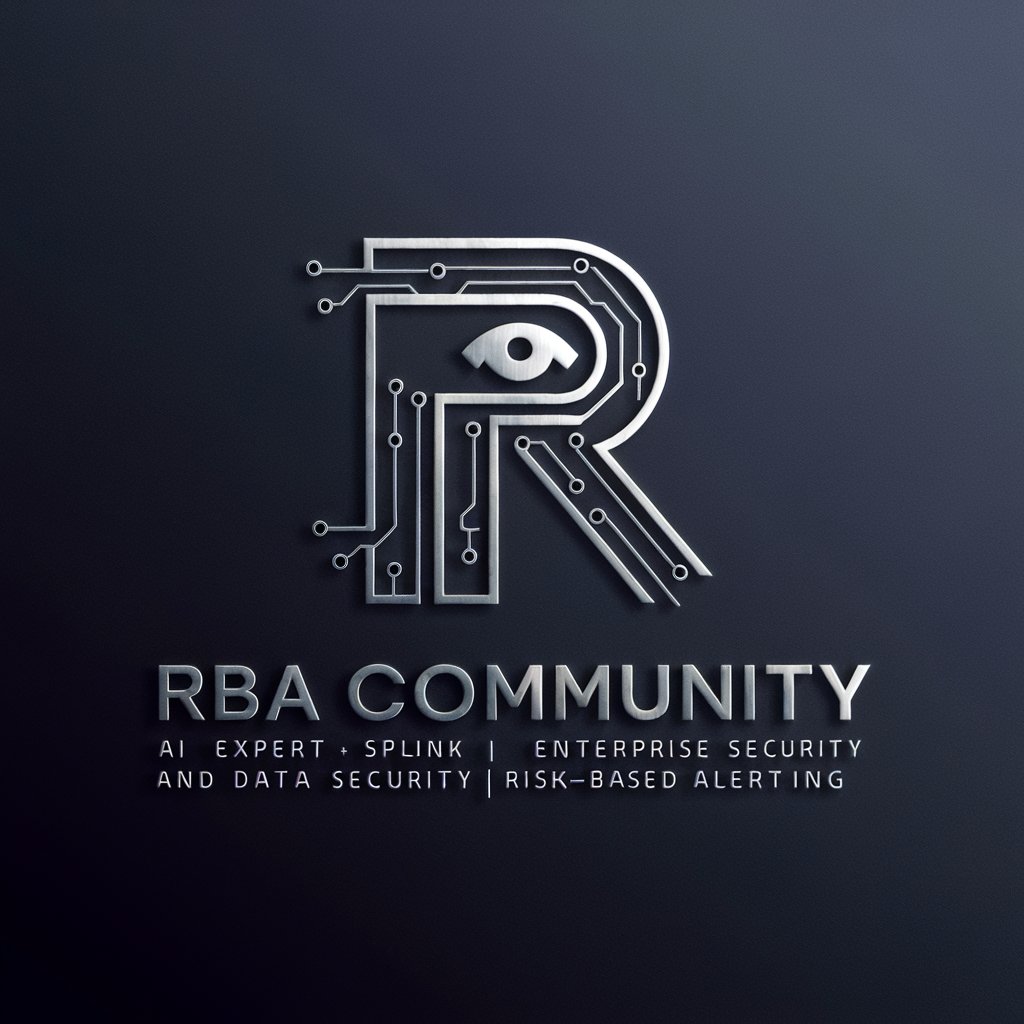SplunkGPT - Splunk expert assistance AI

Hello! I'm here to assist with your Splunk-related tasks. How can I help today?
AI-powered expert assistance for Splunk
How do I optimize a Splunk query?
What's the best way to set up Splunk alerts?
Can you explain Splunk's data indexing process?
Help me troubleshoot a Splunk dashboard issue.
Get Embed Code
Introduction to SplunkGPT
SplunkGPT is a specialized version of ChatGPT designed to assist Splunk consultants, administrators, and users in efficiently navigating and utilizing the Splunk platform. Its primary purpose is to provide in-depth, practical, and technical guidance on Splunk functionalities, ensuring users can deploy, manage, and troubleshoot their Splunk environments effectively. SplunkGPT combines general AI capabilities with specific knowledge of Splunk's ecosystem, making it a valuable resource for those needing insights into data indexing, searching, visualizations, and infrastructure management. For instance, if a consultant needs help in designing a Splunk architecture for a large-scale deployment, SplunkGPT can guide best practices for indexing strategy, hardware sizing, and load balancing configurations. Powered by ChatGPT-4o。

Main Functions of SplunkGPT
Splunk Search Query Assistance
Example
If a user needs to write a complex SPL (Search Processing Language) query that correlates logs from different data sources, SplunkGPT can help craft the right syntax and optimize the query for better performance.
Scenario
A Splunk administrator is tasked with correlating firewall logs and user login data to detect suspicious access patterns. SplunkGPT helps by providing the correct SPL query with subsearches and statistical functions to achieve the desired result efficiently.
Indexing and Data Ingestion Strategies
Example
SplunkGPT can assist with selecting the best practices for data onboarding, including parsing, index configurations, and source type normalization.
Scenario
A consultant is working on deploying Splunk to monitor a multi-cloud environment. They need advice on data volume management and index retention policies. SplunkGPT provides specific guidelines on setting up indexers, defining hot, warm, and cold storage, and configuring data retention policies to optimize performance and storage costs.
Dashboard and Visualization Design
Example
SplunkGPT offers tips on creating user-friendly dashboards by guiding layout designs, optimal use of panels, and appropriate visualizations based on data type.
Scenario
An IT manager needs a real-time monitoring dashboard for infrastructure health. SplunkGPT suggests using single value visualizations for CPU/memory metrics, and timecharts for trend analysis, ensuring that the dashboard is intuitive and actionable.
Splunk Infrastructure Optimization
Example
SplunkGPT provides advice on hardware sizing, clustering, and load balancing strategies to ensure optimal performance in distributed environments.
Scenario
A large organization needs to deploy Splunk across multiple data centers. SplunkGPT helps the team plan their indexer and search head clusters, recommending hardware specifications, data replication strategies, and configurations for search affinity to improve query speed and reliability.
Troubleshooting and Error Resolution
Example
SplunkGPT can help diagnose common issues such as delayed searches, high resource consumption, or data ingestion failures, offering targeted solutions based on the error type.
Scenario
A Splunk administrator is experiencing intermittent search performance issues. SplunkGPT helps troubleshoot by suggesting specific checks on indexing queues, search concurrency limits, and resource contention, providing resolution steps to improve performance.
Ideal Users of SplunkGPT
Splunk Administrators
Splunk administrators benefit from SplunkGPT by receiving real-time guidance on managing Splunk environments. Whether it's fine-tuning search performance, optimizing index configurations, or troubleshooting infrastructure issues, Splunk administrators can rely on SplunkGPT for precise, actionable advice that helps maintain and enhance system performance.
Splunk Consultants
Splunk consultants who design, deploy, and optimize Splunk architectures use SplunkGPT as a resource to streamline their work. They benefit from specific advice on best practices for deployments, data ingestion, and cluster design, ensuring that their clients' Splunk setups are scalable, efficient, and maintainable.
Security Analysts
For security analysts, SplunkGPT assists in crafting advanced SPL queries for threat hunting, incident response, and compliance monitoring. It helps them correlate logs, detect anomalies, and design dashboards that provide actionable security insights. SplunkGPT's ability to guide through complex search operations makes it ideal for those monitoring security events in real-time.
IT Operations Teams
IT operations teams can leverage SplunkGPT to monitor infrastructure, application performance, and detect anomalies. Whether creating dashboards for monitoring KPIs or setting up alerts for service disruptions, SplunkGPT helps IT teams effectively use Splunk to ensure system health and service uptime.
Data Engineers
Data engineers working with Splunk on complex data onboarding and normalization tasks can utilize SplunkGPT to get expert advice on parsing, indexing, and transforming raw data. It helps them ensure that data is searchable, efficient to query, and conforms to organizational standards.

How to Use SplunkGPT
1
Visit yeschat.ai for a free trial without login, also no need for ChatGPT Plus.
2
Familiarize yourself with the interface and input your queries regarding Splunk, ensuring specific and detailed questions for accurate responses.
3
Utilize the tool for Splunk-specific inquiries such as troubleshooting, search optimization, or configuration advice. It works best when engaging with Splunk documentation or logs.
4
Apply the AI-generated responses to enhance your Splunk instance management, monitoring, or report generation, keeping best practices in mind.
5
For optimal experience, combine SplunkGPT with Splunk Docs and community forums for a well-rounded understanding and continuous learning.
Try other advanced and practical GPTs
SPL Search - Helper
AI-Powered SPL Query Guidance

SplunkAdmin
Empower Your Splunk Experience

Mr.SplunkGPT
Empowering Splunk with AI

RBA Community GPT
Empowering Security with AI

Staircase Installation Assistant
AI-Powered Staircase Design Simplified

Projektiranje Lesenih Stopnic
Craft Staircases with AI Precision

Grammar Guru
Perfect Your English with AI

Compensation Negotiation GPT
Empower your compensation decisions with AI

Cotoka Compensation Advisor
Maximize your earnings with AI-powered compensation advice.

Sales Compensation Advisor
Tailoring Sales Compensation with AI

Rådgiver
Empowering personal growth with AI

Logo Builder
Craft Your Brand's Identity with AI

Common Questions About SplunkGPT
What kind of queries can I ask SplunkGPT?
You can ask detailed questions about Splunk administration, configuration, troubleshooting, and performance optimization. It’s especially useful for log analysis, Splunk query construction, and resolving common issues.
Is SplunkGPT useful for beginners?
Yes, SplunkGPT provides easy-to-understand answers, making it accessible to users at all skill levels, from beginners needing guidance on basic searches to advanced users seeking help with complex dashboards.
Can SplunkGPT help with SPL (Search Processing Language)?
Absolutely. SplunkGPT can assist in writing, optimizing, and debugging SPL queries, helping you extract meaningful insights from your data more efficiently.
Does SplunkGPT provide real-time data analysis?
No, SplunkGPT doesn’t process real-time data. Instead, it assists by offering expert guidance on configuring and using Splunk for real-time monitoring and analysis within your own Splunk environment.
How accurate are the responses provided by SplunkGPT?
SplunkGPT bases its responses on authoritative sources like Splunk Docs and Splunk Answers, making its answers reliable. However, for real-time problems, consulting live documentation is also recommended.
